Copying files is one of the most basic yet crucial tasks you will be doing regularly.
Linux has a dedicated cp command for copying both files and directories (folders).
In this part of the Terminal Basics series, you'll learn to copy files and folders in the terminal.
- Change directories
- Make new directories
- List directory contents
- Create files
- Reading files
- Removing files and directories
Let's go on with the seventh chapter in the series.
Copying files in Linux command line
Let me show you a few examples of copying files.
Copy a file to another directory
To copy one file to another directory, all you have to do is follow the given command syntax:
cp Source_file Destination_directoryFor example, here, I have copied a file named Hello.txt to the directory named Tux:

And as you can see, the file has successfully been copied to the Tux directory.
Copy the file but rename it
You can choose to rename the file while copying it. Just give a different name to the 'target file'.
cp Source_file Renamed_fileFor reference, here, I have copied a file named Hello.txt to the same directory by renaming it to Renamed_Hello.txt:
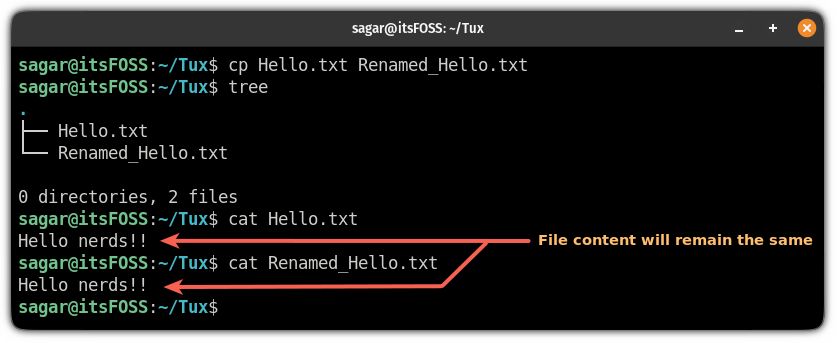
Why would you do that? Say, you have to edit a config file. A good practice is to make a backup of the config file in the same location before editing it. This way, you can revert to the old configuration if things don't go as planned.
Copy multiple files to another location
To copy multiple files to another directory, execute the command in the following fashion:
cp File1 File2 File3 FileN Target_directoryHere, I copy multiple files to a new location.
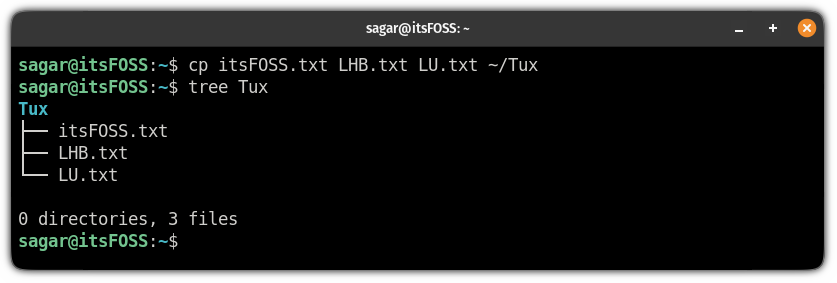
Deal with duplicate files while copying
By default, the cp command will override the file if a file with the same name exists in the target directory.
To avoid overriding, you can use the -n option with the cp command, and it won't override the existing files:
cp -n Source_File Destination_directoryFor example, here, I have tried to copy two files that were already there in my targeted directory and used -v option to showcase what is being done by the command:
cp -n -v itsFOSS.txt LHB.txt LU.txt ~/Tux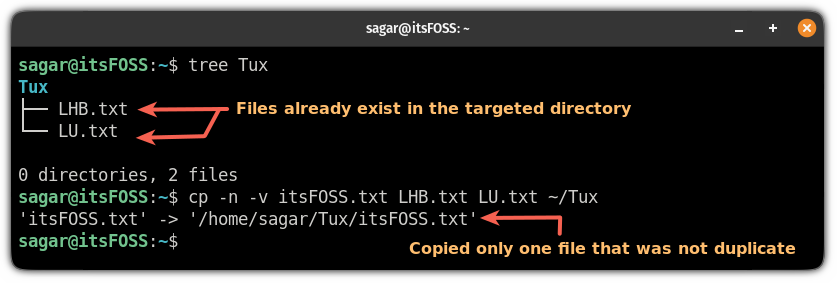
Interactively copy files
But what about when you want to override some files, whereas some should be kept intact?
Well, you can use the cp command in the interactive mode using the -i option, and it will ask you each time whether the file should be overridden or not:
cp -i Source_file Destination_directory
Copy directories in Linux command line
There is mkdir command to make new directories, rmdir to remove (empty) directories. But there is no cpdir command for copying directories.
You'll have to use the same cp command but with the recursive option -r to copy a directory with all its content to another location:
cp -r Source_dir Target_dirFor example, here, I have copied a directory named IF to LHB:

But it copied the entire directory 🤨
So, what do you do when you only want to copy the directory's contents, not the directory itself?
Here's what you can do:
Copy only the contents of a directory (not the directory)
To copy only the contents of the directory, not the directory itself, you append /. at the end of the source directory's name:
cp -r Source_directory/. Destination_directoryHere, I want to copy the contents of a directory named IF which contains the following three files:

And I will execute the following command to copy the file contents of the IF directory to LHB:
cp -r IF/. LHB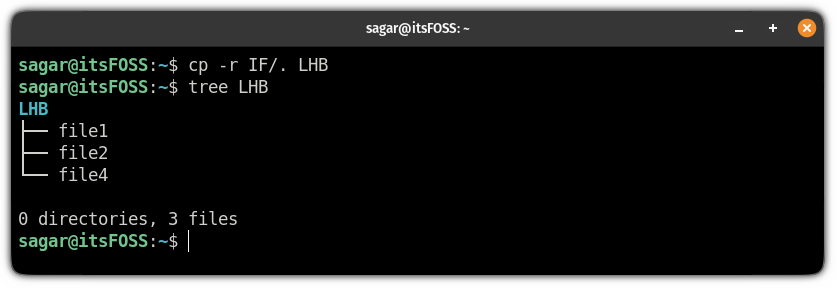
You can also use Source_directory/* here.
Copy multiple directories
To copy multiple directories, you will have to execute the command in the following way:
cp -r Dir1 Dir2 Dir3 DirN Destiniation_directoryFor example, here, I have copied two directories named IF and LU to the LHB:
cp -r IF LU ~/LHB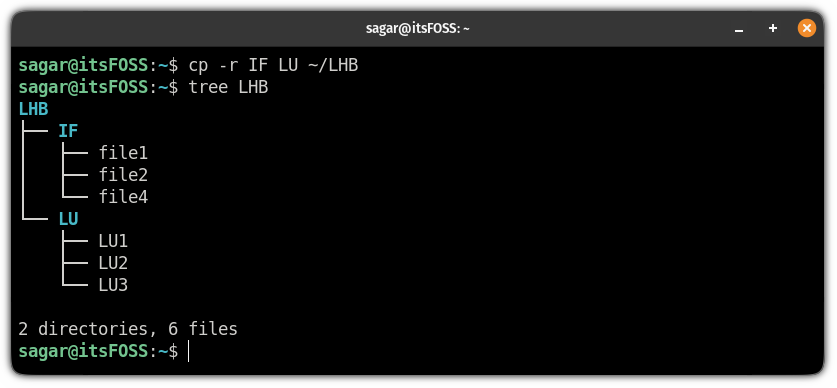
You can do the same when you want to copy files from multiple directories but not the directory itself:
cp -r Dir1/. Dir2/. Dir3/. DirN/. Destination_directory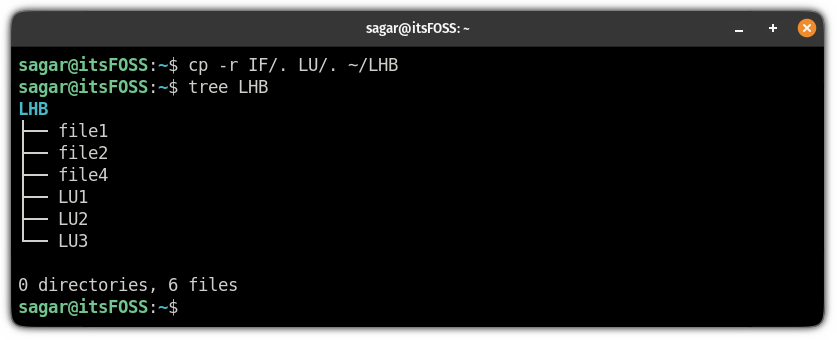
📝 Test your knowledge
Now, let's see how much you remember the lessons learned so far.
- Create a directory called copy_practice
- Copy the file /etc/services to this newly created folder
- Create a folder named secrets under this directory and copy files /etc/passwd and /etc/services in it
- Copy the services file in copy_practice to the secrets folder but don't overwrite it
- Copy the secrets folder to your home directory
- Delete the secrets and copy_practice directories
That would give you some practice.
It's going well so far. You have learned quite a few things. In the next chapter, you'll see about moving files and folders with mv command.


